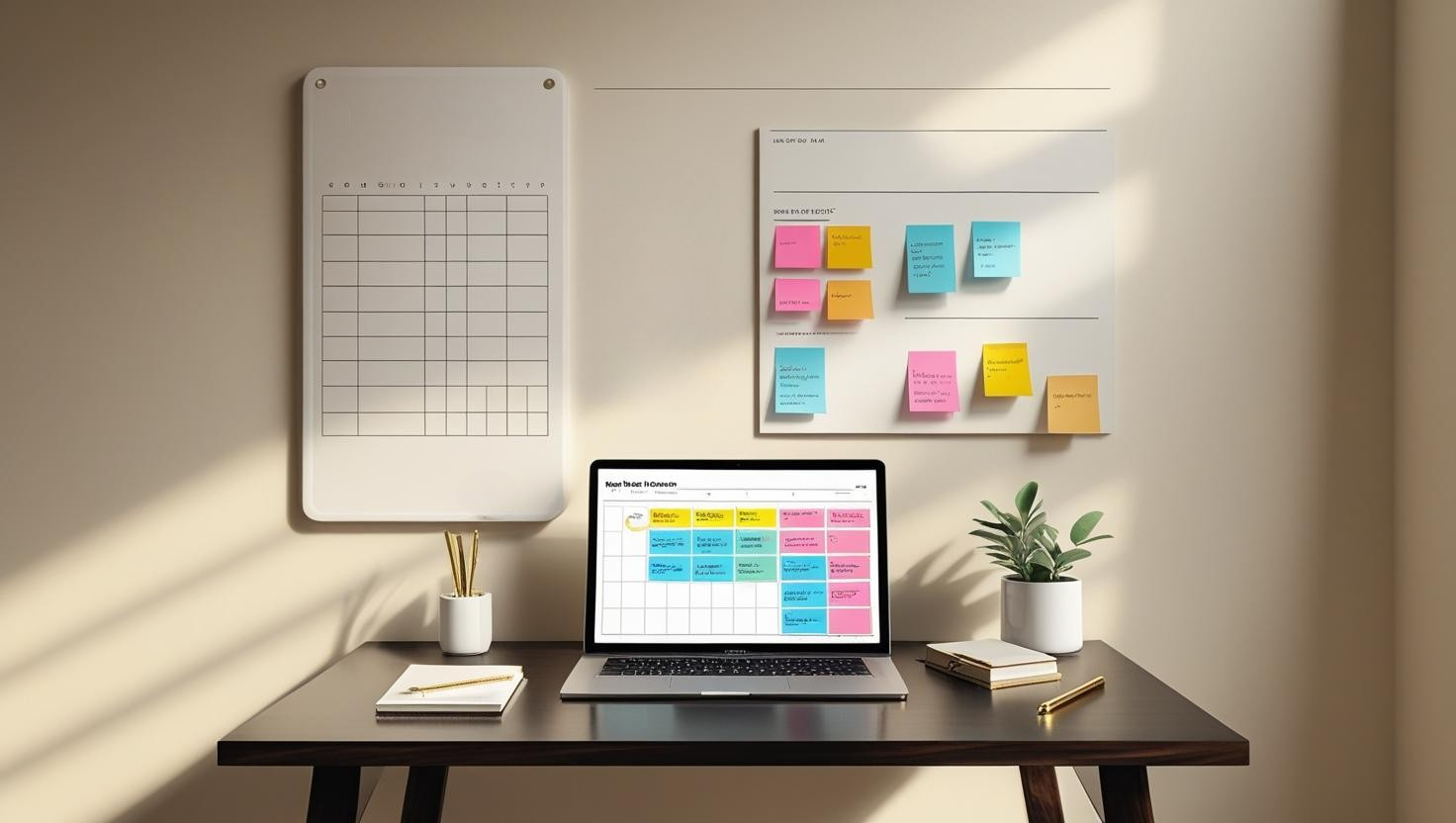It Wasn’t Laziness: How I’m Learning to Navigate ADHD Symptoms One Small Win at a Time
Getting diagnosed with ADHD later in life is like suddenly having the right lens to look back at your whole life — and realizing how much of it was out of focus.
What once felt like character flaws, laziness, or scatterbrained behavior now clicks into place with a kind of bittersweet relief. You finally understand why your brain works the way it does… and yet that doesn’t mean you automatically know what to do with that knowledge.
For me, after the diagnosis came awareness. Too much awareness, sometimes. The kind that makes you look around your home — and your history — and wonder how much of what you’ve carried wasn’t really yours to feel ashamed about at all.
That Stack of Post-Its (aka: Proof It Wasn’t a Big Task, But a Block)
The other day, I found a stack of random notes on my shelf — a mess of post-its, old business cards, scraps with barely-legible reminders. I’d been avoiding this pile for months. It sat there like some great dragon guarding a hoard of undone tasks.
And when I finally went through it?
It took me seconds.
The pile was handled so quickly, it made me laugh — and then almost cry. Because this is the thing: it was never about the task. It was about the invisible wall my brain had thrown up between me and starting. A wall built from perfectionism, fear of making the “wrong” decision, overstimulation, and the weird time-blindness that ADHD so often brings.
ADHD isn’t just about distraction — it’s about the quiet buildup of avoided things that your brain treats like monsters under the bed. Until you look, and realize they were just shadows.
The Ghost List of All the Things I Meant to Do
And then there’s the other kind of noticing: the deeper ache of remembering things you once meant to do.
Sometimes a memory floats to the surface — a promise I made, an idea I loved, a task I swore I’d circle back to — and I feel that tug in my chest. Oh, right. That.
And then… nothing happens.
I don’t write it down. I don’t take action. I just feel the swirl of guilt and wonder if it’s even worth trying to catch it again. Is that thing still mine to care about? Or am I just chasing ghosts?
It’s a little crazy-making, honestly. A reminder that my brain so often moves faster than I can organize it — and that so many beautiful things have slipped through the cracks.
So, What Do We Do With All This?
The truth is, noticing is a double-edged sword. On one hand, it brings healing. It helps us release shame and understand that we were doing the best we could, with a brain wired for something different than the world expected of us.
But on the other hand, it can be painful. Because awareness without compassion just becomes another tool for self-judgment.
So here’s what I’m learning to do:
- Celebrate small victories. Like the five-minute cleanup of a six-month-old pile. That’s not “finally doing a basic task.” That’s a breakthrough.
- Let go, consciously. If an old idea or to-do keeps floating up but doesn’t feel alive anymore, I say thank you and release it. Not everything has to be recovered. Some things can just go.
- Capture with curiosity, not pressure. When something sparks my memory or interest, I jot it down without making it a commitment. I keep a “brain greenhouse” — a safe place for ideas to grow if they want to.
- Keep talking to myself kindly. Because the noticing doesn’t stop. But neither does my capacity to meet it with softness.
Final Thought: It’s Not About “Catching Up”
If you’re newly diagnosed — or just waking up to what your brain has been trying to tell you for decades — I want you to know this:
You’re not behind.
You’re not broken.
You’re not lazy, or flaky, or unmotivated.
You are becoming aware, and that’s a tender and powerful place to be. Trust yourself to meet what arises — in your home, your memories, your thoughts — one moment at a time. With a deep breath. With some humor. With a little grace.
Because the journey forward isn’t about catching up.
It’s about catching on — to yourself, your rhythms, your truth.
And that… that’s a beautiful place to begin.
💌 Dear Beloved, you don’t have to figure it all out alone.
The Dear Beloved newsletter is a soft place to land for neurodivergent creative women building life and work in their own way. Subscribe for gentle support, honest reflections, and tools to help you stay connected to your dreams.
🌟 As a thank you, you’ll also receive a free Canva vision board template to keep your vision visible and beautifully yours.






